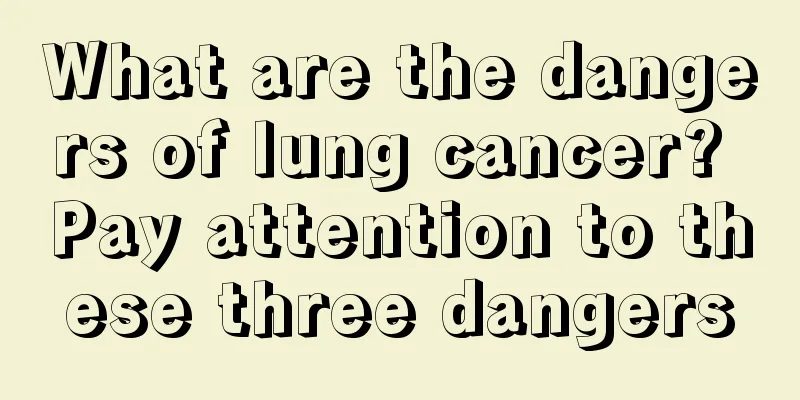Why does my arm go numb when I press it

|
In daily life, many people have had this experience, that is, the arm becomes numb when pressed, but after a while, the numbness disappears. Generally, this numbness is a normal phenomenon and there is no need to worry too much. However, some people will still experience numbness in their arms even if they are not pressed. In this case, you usually need to be vigilant and it is best to go to the hospital for a check-up. Why does my arm go numb when I press it? Numbness is an abnormal sensation of tingling or loss of sensation felt by the patient and is a type of sensory disorder. Numbness can occur anywhere in the body, but is most common in the hands, feet, fingers, and toes. Numbness is divided into physiological numbness and pathological numbness. Physiological numbness is caused by improper posture, prolonged pressure on a certain part of the body, temporary obstruction of blood circulation, and transient neuromuscular malnutrition. For example, improper positioning of hands and feet, pressure on the arms while sleeping, standing or sitting cross-legged for a long time, long-distance cycling, etc. may cause nerve compression and cause short-term numbness. This kind of physiological numbness can be relieved and disappear on its own by simply changing posture, relieving pressure, or moving around. Pathological numbness occurs frequently and exists for a long time. Some chronic numbness of the hands and feet indicates local blood supply deficiency or a certain degree of nerve damage, such as cerebral arteriosclerosis or diabetic peripheral neuropathy. Numbness sometimes occurs alone but is often accompanied by pain, other discomfort, or paralysis with loss of movement. Numbness is often a sign of illness The first type: cervical spondylosis. Due to a series of pathological changes in the cervical spine, the spinal nerve roots are likely to be compressed, pulled and irritated, causing numbness and swelling of the fingers. The second type: transient ischemic attack. Because of the increased blood viscosity and relatively slow blood flow when sleeping at night, these factors can lead to unilateral numbness of the fingers caused by one-time cerebral ischemia. The third type: stroke. Stroke patients often experience headaches, dizziness, limb numbness, and tongue swelling. Numbness in the fingers is also one of the symptoms. The fourth type: diabetes. Diabetes can cause many complications. If peripheral neuropathy occurs, sensations such as numbness in the limbs may occur. Fifth type: rheumatoid arthritis. Numbness in the fingers is one of the early symptoms, and severe cases may cause joint pain. Sixth: Carpal tunnel syndrome. The thickening of the transverse carpal ligament is mainly caused by wrist injury, fracture, dislocation, sprain or excessive wrist fatigue. Numbness and weakness in the fingers is one of its symptoms. Seventh type: mobile phone elbow. This is mainly caused by answering calls on the mobile phone or sleeping with bent arms as a pillow, which compresses the nerves and causes numbness and weakness in the fingers. The eighth type: peripheral neuritis. Long-term poor absorption and digestion function and malnutrition can lead to vitamin B1 deficiency and cause numbness in fingers, so you should pay attention to the absorption of nutrients in your daily life. Ninth type: chronic alcoholism. For some people who drink frequently, numbness in the fingers is most likely due to chronic alcohol poisoning. The tenth type: cardiovascular blockage. This may cause numbness in your fingers due to poor blood circulation. |
<<: Drugs that reduce glutamyl transpeptidase
>>: Can I have a uterine curettage immediately after medical abortion?
Recommend
Can I eat glutinous rice balls if I have constipation
Constipation is very common. There are some reaso...
What causes the recurrence of herpes zoster
Shingles is a common viral infection that poses a...
What are the symptoms of prostate cancer
Prostate cancer is a common and serious disease. ...
Can mid- to late-stage small cell lung cancer be cured?
Can mid- to late-stage small cell lung cancer be ...
Dosage of Ceftriaxone Sodium for Injection
Ceftriaxone Sodium for Injection is an antibiotic...
What to do if your hands are allergic to laundry detergent
Laundry detergent is a common cleaning item in th...
Life expectancy of papillary thyroid cancer
Thyroid cancer itself has many types, and papilla...
What harm does nicotine do to the human body?
As people's living standards continue to impr...
What is vestibular vertigo?
Vestibular vertigo is a common disease in the pas...
Is it better to soak your feet before or after taking a bath
Foot soaking is a very good health-preserving met...
Can hemorrhoids be cured?
Hemorrhoids are a very common disease. This type ...
Can colon cancer be cured by removing a malignant tumor?
Whether or not a malignant colorectal cancer tumo...
What are the contraindications for chemotherapy for gastric cancer
Chemotherapy is one of the commonly used methods ...
What tests are needed to diagnose liver cancer?
Liver cancer patients all know that there are man...
Is it good to wear contact lenses
Children nowadays become nearsighted since primar...









